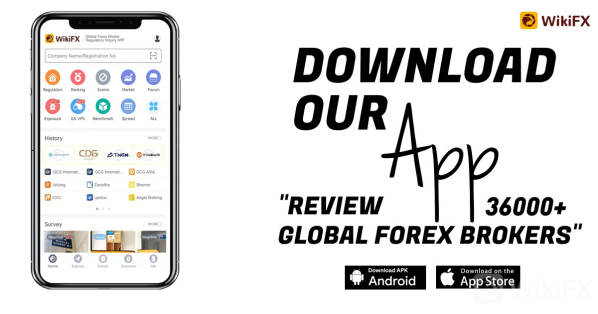
As a trader, it is almost impossible to trade or enter the market without a broker. Forex transactions which usually take place in the billions of dollars all happen through banks and financial institutions. Without big funds, you cannot play with the big boys. Hence why we retail traders need a broker to act as our intermediary between us and these financial institutions, as well as afford us more buying or selling power. But with that being said you need to familiarize yourself with different types of brokers that are out there and the ones which are best suited to you.
To find the best broker for you it‘s best you first search through WikiFx. This app allows you to find the best-regulated brokers as well as shows you which brokers to clearly avoid. Finding a broker can lead you down some scan brokers who will happily take your money. So don’t walk through a minefield blindfolded. Trust WikiFx.
There are different types of brokers out there but there are two you should be most concerned about. There are desk dealing brokers (DD), and direct market access brokers (DMA).
DD brokers are also known as the market makers and act as the intermediaries between you and financial institutions. They buy up large positions from liquidity providers and sell these positions in chunks which are then affordable to traders. They essentially take the other side of your trade. The benefit of such a system is that you get
· No commissions on a trader
· Low entry barriers
· Fixed spreads
· Fast trade execution
The disadvantage of such a broker are
· They take the opposite of your trading position, meaning they are incentivized to make you lose
· They are able to manipulate the market as they are market makers
DMA brokers are given direct access to the interbank Forex market. At this point, the pricing and entry of your trades are then done by the banks as opposed to the broker as the banks act as the liquidity provider. The benefits of such a broker are
· There is little manipulation of the marker by a brokers
The disadvantages are
· Each trade the broker will charge a commission as that is where their profits lie
· The barriers of entry are much higher as you will need a lot more cash to get involved in the markets this way.
As a trader, it may seem the DD brokers may best serve us but be careful as once again these guys make their money by your losing trades. So they need you to lose and some brokers have done some shady things in the name of making you lose. Because they are the liquidity providers for you they might not be so keen to pay up when you withdraw profits as well. There are many cases of traders being swindled out of their money due to this financial structure. But then again you may not have big amounts of liquidity to gain direct market access to the bank. And the other issue is that with DMA brokers is that the speed of transactions may be slower due to the fact that your trade has to go through the broker to the FX interbank.
So the best choice would be a DD broker but it is about finding the right one. Butnlike a said before your best bet is looking to look at your broker using WikiFx. This app aids you in finding the best-rated brokers with the best reviews. They have connected the regulatory boards throughout the world so they can guarantee that if your broker commits any misconduct, they will be put right back into line. Trust me, these guys can save you a lot of Hustle and grief, so give them a try. You are going to need to find a broker in any case so best you go with them

Leave a Reply